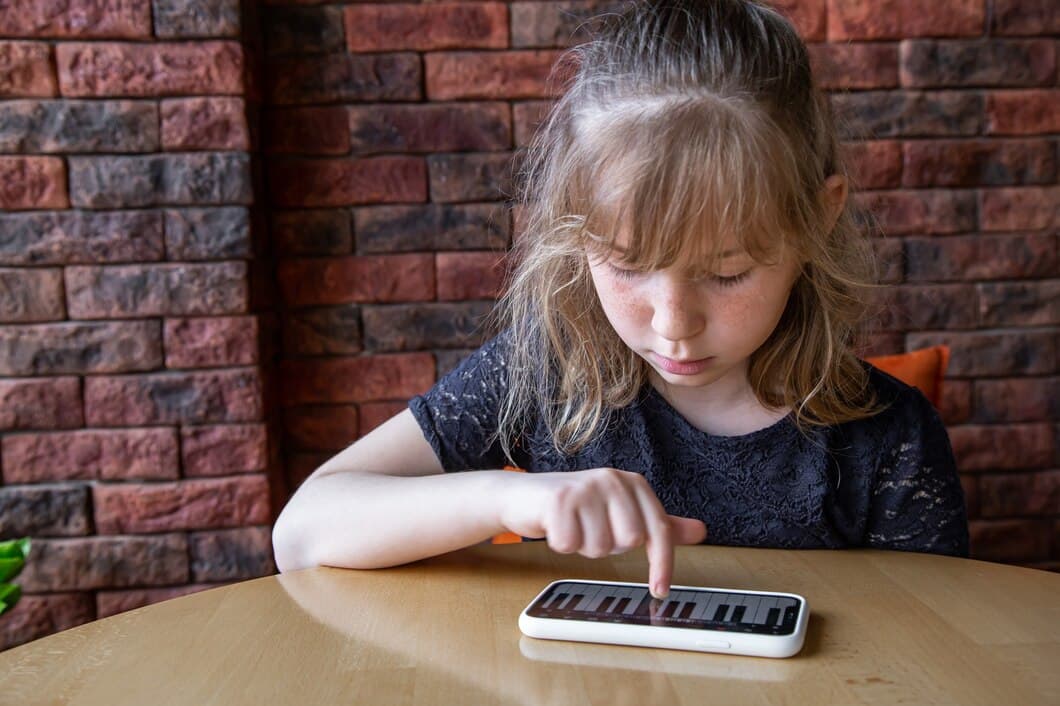How To Clean A Laptop Keyboard With Sticky Keys Without Damaging The Keys?

Sticky laptop keys can be a major annoyance, but cleaning them without damaging the keys can be a challenge. In this article, we will provide a step-by-step guide on how to clean a laptop keyboard with sticky keys without damaging the keys. We will also provide tips on how to prevent sticky keys from occurring in the future.
To clean a laptop keyboard with sticky keys, you will need a few supplies. These supplies include a can of compressed air, a soft cloth, and a cotton swab. You should also have a small bowl of water nearby.
Sticky keys on your laptop keyboard can be frustrating, but there are a few simple steps you can take to clean them without damaging the keys. First, turn off the laptop and unplug it from the power source. Next, use a cotton swab dipped in isopropyl alcohol to gently clean the keys. Be sure to get into all the nooks and crannies. If the keys are still sticky, you can try using a soft-bristled brush to gently scrub away the residue. Finally, allow the keys to dry completely before using the laptop again.
Here are some additional tips for cleaning sticky keys on a laptop keyboard:
- Use a light touch when cleaning the keys. Pressing too hard can damage the keys or the keyboard itself.- If you are using a brush, be sure to use a soft-bristled brush. A stiff-bristled brush can damage the keys.- Allow the keys to dry completely before using the laptop again. Using the laptop while the keys are still wet can cause the keys to stick again.- If the keys are still sticky after cleaning, you may need to replace the keyboard.
Use a soft brush to remove loose debris.
Start by using a soft brush to gently remove any loose debris from the keyboard. This will help to dislodge any crumbs or dust that may be stuck in between the keys.
If there is any stubborn debris that won't come loose with a brush, you can try using a cotton swab dipped in isopropyl alcohol to gently wipe it away.
You can also use a can of compressed air to blow out any loose debris from the keyboard. This is a good option if you don't want to use any liquids.
Once you have removed all of the loose debris, you can then move on to cleaning the keys themselves.
While you may not realize it, your keyboard collects a lot of dust, dirt, and germs, especially if you use it regularly. If you're not careful, this can lead to sticky keys that can make it difficult to type. Sticky keys can be caused by a variety of things, including spilled liquids, food crumbs, or even just the natural oils from your fingers. But no matter what the cause, there are a few simple steps you can take to clean your keyboard and get rid of those sticky keys.
First, you'll need to gather a few supplies. You'll need a soft cloth, a cotton swab, and some rubbing alcohol. If you don't have rubbing alcohol, you can also use a mild soap and water solution. Once you have your supplies, you can start cleaning your keyboard.
To clean the keys, start by gently wiping them down with the soft cloth. This will remove any loose dirt or dust. If there are any sticky spots, you can use the cotton swab dipped in rubbing alcohol to clean them. Be sure to be gentle, as you don't want to damage the keys. Once you've cleaned the keys, let them dry completely before using your keyboard again.
Use a cotton swab dipped in isopropyl alcohol to clean the keys.

To start, turn off your laptop and unplug the power supply. This will prevent any electrical shocks and make it safer to clean your keyboard. It's also a good idea to remove any dust bunnies or loose debris from the surface of the keys using a soft brush or compressed air. This will help to remove any dirt or food particles that may have gotten stuck between the keys.
Next, prepare your cleaning solution. Isopropyl alcohol is the best option for cleaning a laptop keyboard since it is effective at removing dirt and bacteria and it evaporates quickly. However, you should never use harsh chemicals like bleach or ammonia, as these can damage the plastic keys and electrical components.
Dip a cotton swab into the isopropyl alcohol and gently wipe it across the surface of each key. Be sure to get into the spaces between the keys as well. If your keys are particularly dirty, you may need to use a soft cloth to wipe away any loosened dirt and debris. Once you have finished cleaning the keys, use a dry cotton swab to wipe away any remaining cleaning solution.
It's important to clean your laptop keyboard regularly to remove dirt, dust, and debris that can build up over time. Sticky keys can be a particular nuisance, making it difficult to type and potentially damaging the keyboard. To clean sticky keys without damaging them, you'll need to use a soft cloth or brush and a mild cleaning solution.
Dip the cloth or brush into the cleaning solution and gently wipe down the keys. Be sure to get into all the nooks and crannies, but avoid using too much force. If the keys are particularly sticky, you can use a cotton swab dipped in the cleaning solution to get into the harder-to-reach areas.
Once you've cleaned the keys, use a dry cloth to wipe them down and remove any excess moisture. Allow the keyboard to dry completely before using it again.
If your keyboard is particularly dirty, you may need to remove the keys to clean them thoroughly. To do this, use a small screwdriver or keycap puller to gently pry the keys off. Once the keys are removed, you can wash them in warm, soapy water and allow them to dry completely before replacing them.
If the keys are still sticky, use a keycap puller to remove the keys and clean them with a cotton swab dipped in isopropyl alcohol.
If the keys are still sticky after using a vacuum cleaner or compressed air, use a keycap puller to remove the keys. Then, clean the keys with a cotton swab dipped in isopropyl alcohol. Be sure to get all of the dirt and debris off of the keys, and then allow them to dry completely before putting them back on the keyboard.
Once the keys are clean and dry, test them out to make sure they are working properly. If any of the keys are still sticky, you may need to repeat the cleaning process. Also, be sure to clean the keyboard regularly to prevent the keys from getting sticky again.
To clean a laptop keyboard with sticky keys without damaging the keys, you'll need a few supplies. You'll need a can of compressed air, a soft cloth, and a cotton swab. First, use the compressed air to blow away any loose debris from the keyboard. Then, use the soft cloth to wipe away any remaining dirt or grime. Finally, use the cotton swab to clean the individual keys. Be sure to get in between the keys and around the edges. If the keys are still sticky, you can try using a cleaning solution. Be sure to test the solution on a small area of the keyboard first to make sure it doesn't damage the keys.
Once you've cleaned the keyboard, be sure to dry it thoroughly. You can use a soft cloth or a hair dryer on a low setting. Once the keyboard is dry, you can start using it again. If the keys are still sticky, you may need to repeat the cleaning process.
Use a vacuum cleaner to remove any remaining debris.
First, take a vacuum cleaner with a soft brush attachment and gently vacuum the keys, using a low suction setting to avoid damaging the keys.
The suction will help to remove any loose debris or dust that may be stuck between the keys.
After vacuuming, use a compressed air can to blow out any remaining debris from the keyboard.
Finally, use a cotton swab dipped in isopropyl alcohol to clean the keys and remove any remaining residue.
Unplug your laptop from any power source and turn it off. Close the lid and flip the laptop upside down. Use a can of compressed air to blow out any loose crumbs or debris from the keyboard. Hold the can upright and insert the nozzle into the space between the keys.
If there is still stickiness, use a cotton swab dipped in isopropyl alcohol to gently wipe down the keys. Be careful not to use too much alcohol, as it can damage the keys. Allow the keys to dry completely before using your laptop again.
If the keys are still sticky, you may need to remove them and clean them individually. To do this, use a small screwdriver to gently pry the keys off the keyboard. Once the keys are removed, use a cotton swab dipped in isopropyl alcohol to clean the keys and the underside of the keyboard.
Use a clean cloth to wipe down the keyboard.
Once you’ve removed the keys, it’s time to clean them. You can use a soft cloth, such as a microfiber cloth, to wipe down the keys. Be sure to get in between the keys and around the edges. If there is any stubborn dirt or grime, you can use a cotton swab dipped in rubbing alcohol to clean it up.
Once the keys are clean, you can put them back on the keyboard. Be sure to press down on the keys firmly to make sure they are secure. You can now use your laptop keyboard as usual.
Frequently Asked Questions

To Sum Up
To sum up, cleaning your laptop keyboard regularly is essential to maintaining its functionality and lifespan. While it may seem like a daunting task, especially if your keys are particularly sticky, it can be done easily and effectively with the right approach. By following the steps outlined above, you can restore your keyboard to its former glory and ensure that it continues to perform optimally for years to come.
Remember to always consult your laptop's manual for specific cleaning instructions and precautions, as different models may have varying requirements. If you encounter any difficulties or have concerns about damaging your keyboard, it's best to seek professional assistance from a qualified technician.




